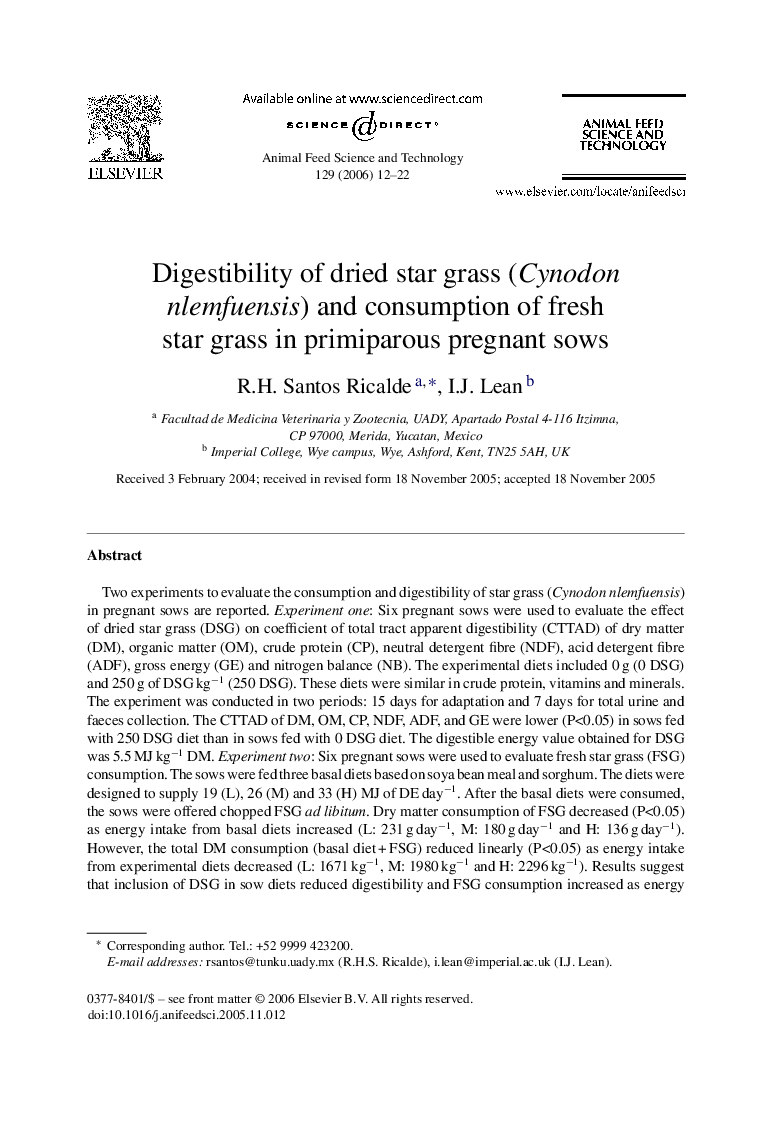| Article ID | Journal | Published Year | Pages | File Type |
|---|---|---|---|---|
| 2421124 | Animal Feed Science and Technology | 2006 | 11 Pages |
Two experiments to evaluate the consumption and digestibility of star grass (Cynodon nlemfuensis) in pregnant sows are reported. Experiment one: Six pregnant sows were used to evaluate the effect of dried star grass (DSG) on coefficient of total tract apparent digestibility (CTTAD) of dry matter (DM), organic matter (OM), crude protein (CP), neutral detergent fibre (NDF), acid detergent fibre (ADF), gross energy (GE) and nitrogen balance (NB). The experimental diets included 0 g (0 DSG) and 250 g of DSG kg−1 (250 DSG). These diets were similar in crude protein, vitamins and minerals. The experiment was conducted in two periods: 15 days for adaptation and 7 days for total urine and faeces collection. The CTTAD of DM, OM, CP, NDF, ADF, and GE were lower (P<0.05) in sows fed with 250 DSG diet than in sows fed with 0 DSG diet. The digestible energy value obtained for DSG was 5.5 MJ kg−1 DM. Experiment two: Six pregnant sows were used to evaluate fresh star grass (FSG) consumption. The sows were fed three basal diets based on soya bean meal and sorghum. The diets were designed to supply 19 (L), 26 (M) and 33 (H) MJ of DE day−1. After the basal diets were consumed, the sows were offered chopped FSG ad libitum. Dry matter consumption of FSG decreased (P<0.05) as energy intake from basal diets increased (L: 231 g day−1, M: 180 g day−1 and H: 136 g day−1). However, the total DM consumption (basal diet + FSG) reduced linearly (P<0.05) as energy intake from experimental diets decreased (L: 1671 kg−1, M: 1980 kg−1 and H: 2296 kg−1). Results suggest that inclusion of DSG in sow diets reduced digestibility and FSG consumption increased as energy supply in the basal diet was reduced. However, the increased in FSG consumption did not compensate for the energy deficit in the basal diet.
